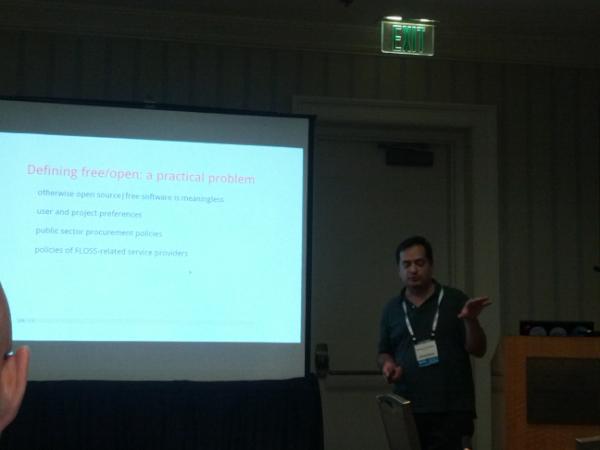
It’s not as easy a question as you might think. For me, I used to (perhaps naively) believe that any license approved by the Open Source Initiative (OSI) is open source. Those licenses are all supposed to conform to the Open Source Definition.
Speaking at the LinuxCon conference, Red Hat lawyer Richard Fontana led an awesome session that really illuminated by view of the whole discussion.
“There is often just a deference to authority,” Fontana said. “People just say OSI has a definition and that’s that.”
Apparently that’s enough. Fontana has some criticisms of the OSI, an organization that is now undergoing a period of transition. Fontana like the Free Software Foundation (FSF) approach to understanding and labelling open software.
“Institutions should be providing rationale for how they reach a decision on what is and isn’t open,” Fontana said.
Perhaps even more interesting, to me is that there is also a movement to expand the definition of what is open source beyond just the license.
Fontana suggests that perhaps it’s time to also consider adding open development criteria to the definition of open source. That’s the idea that a project isn’t truly open unless it actually accept patches that are then including back into the project.
That idea might not work for really small projects, but for projects of reasonable scale it will.
The point that Fontana makes is a really good one. Simply relying on licensing terms and the fact that source code is available isn’t necessarily enough to ensure that there is software freedom.
Sean Michael Kerner is a senior editor at InternetNews.com, the news service of the IT Business Edge Network, the network for technology professionals Follow him on Twitter @TechJournalist.


